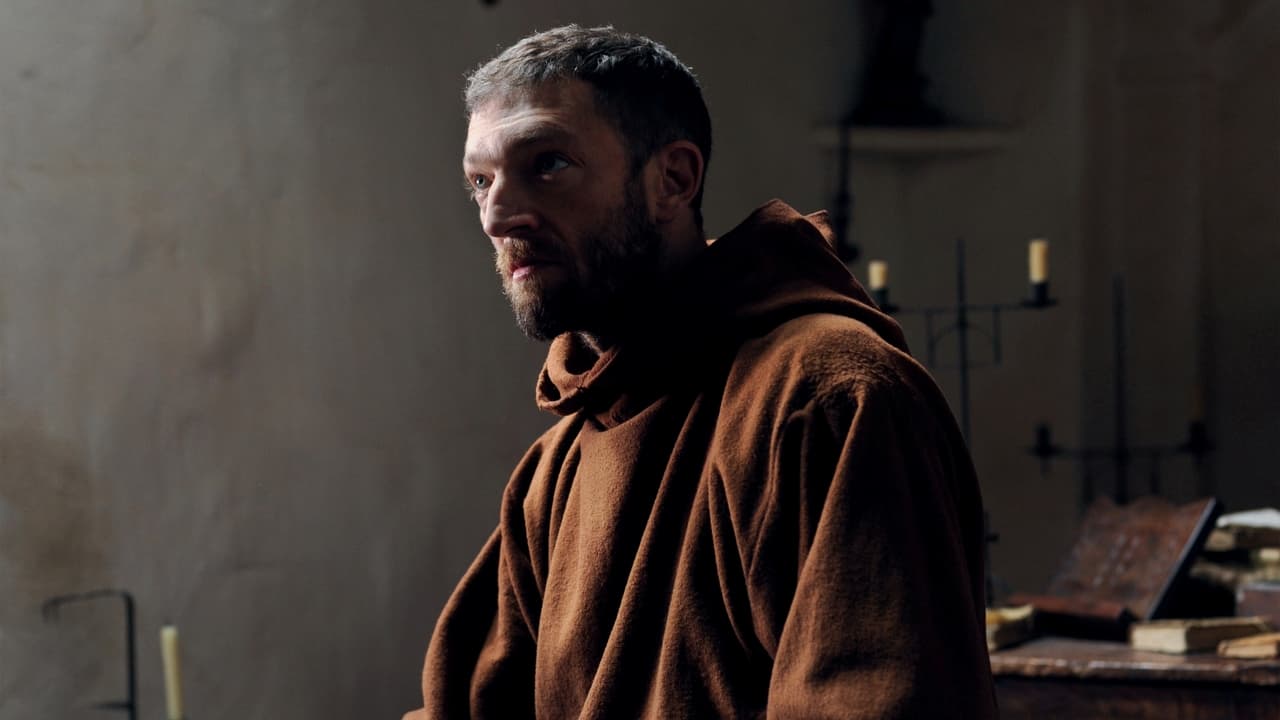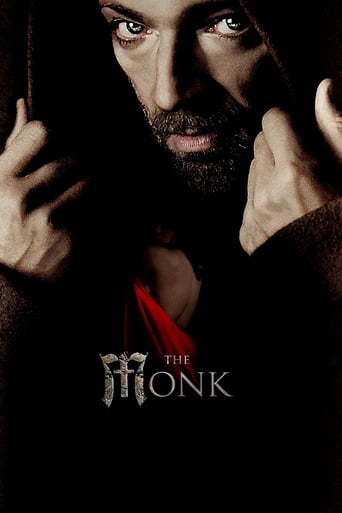

Just so...so bad
... View MoreIt's an amazing and heartbreaking story.
... View MoreThrough painfully honest and emotional moments, the movie becomes irresistibly relatable
... View MoreThis is a gorgeous movie made by a gorgeous spirit.
... View MoreThis review contains a good deal of lesser spoilers. The reviewer leaves the most profound apologies for this, but it seemed impossible to present the necessary sentiments without it.--------------The year of 1796 saw the first printing of The Monk: A Romance, then signed anonymously by M.G.L., and was heralded as a great book by the newspaper critics, despite the highly controversial sentiments found therein. It is quite accurate to describe the novel as the Breaking Bad of the era, although here it is the demonical allure of lust which governs the descent of Ambrosio, the protagonist monk, from chaste to villain; from a servant of God to a lustful and violent sinner marked for permanent residency in the pit of fire.Yet, the tide of the literary criticism soon turned to infamy and few of the contemporary books set so many voices aflame in anger as The Monk did. Meanwhile the second edition had been printed, and this time Mathew G. Lewis, in pride of his work, signed not only with full name, but also his position in the House of Commons. This in turn meant he and his family would feel the full force of the public's discontent. And thus we come to an essential point in the comparison of novel and movie: Due to this discontent, Lewis decided to revise the novel, milden it to a niveau more acceptable to the public, and when the fourth print saw the light of day in 1798 it was this revised edition which was found on its pages. In short, it is important to know that there are two versions of The Monk, one highly provocative version and one very different version whose changes borders on censorship.It seems to this reviewer that the movie was based on the second and less provocative version. In fact, it seems like the movie further censors the tale, now to the point where there is not much to get upset about. Where the original tale featured nuns who torture and starve a young woman, Agnes, and her newborn child to death - and this point was hugely important to Ambrosio's fall in the book - it is reduced to a small scene of incarceration where the young woman's death is made unimportant. Where the original tale featured the monk's all-night ravishing of Antonia, a girl of fourteen which he had drugged by diabolical intervention, the movie features a version of the scene where Antonia smiles and welcomes him into the bed for a brief tryst (still under diabolical influence, mind you). Where the original tale presents Ambrosio, the monk, as having a healthy mind and his vices as being solely the work of his lusts, the movie provides him with auditory hallucinations of diabolical voices, thus insinuating that the blame must be placed on his delusional mind rather than the corruption of his soul, a point which makes his deeds more easy to swallow by today's audience. For the brevity of this review I'll stick to these examples, they provide more than sufficient evidence towards the point I try to make: Le Moine is not in any way a decent representation of what this book has meant for Gothic fiction and modern literature.Yet, this is not the reviewers most prominent issue with Le Moine. Let again an example serve as illustration: Mathilda is the temptress of the tale, who on film as well as paper serves as the one who creates the situations where Ambrosio's integrity is tested and inevitably where his desires is the victor. In the book she is eventually revealed as being a spirit in service of Lucifer himself. Now, this is a hugely important connection if one is to understand the tale, but the movie neglects this. Thus, to understand the deeds of Mathilda and why she did it, you have to read the book. Likewise it neglects to explain the importance of the aforementioned death of Agnes, as well as the murder, the incest, and several other of the misdeeds and their relation to Ambrisio's gradual perversion of his soul. To figure out why the tale works as it does, to be able to follow the red thread with all the necessary information to do so, you have to read the book. And here comes my problem: If the movie still requires people to read the book then the movie should reflect the book quite closely, but Le Moine does the exact opposite when it changes the tale into something entirely different than the tale of the book. It's not just absurd, it is pointless and renders the movie both redundant and, in this reviewer's opinion, quite annoying.This is not to say that Le Moine is without virtues. As pointed out by others, the mood is wonderful, the acting resembles perfection, and the scenery and costumes places us perfectly into the era as described by the book. In fact, the faults pointed out herein are of a kind that many would ignore for the simple enjoyment of the movie. However, if one has read the book in all it's strength and all it's intensity, then Le Moine comes across as too flat since it lacks the true brimstone of the original; and for those who want all the answers, to truly understand the movie, then it is necessary to face the confusion of reading the very different tale from the book.
... View MoreFrench film, set in 17th century Madrid. Foundling abandoned outside monastery is taken in by monks, subsequently raised as one of their own. In time, the orphan grows into the monastery's rock star (Vincent Cassel). Devoted followers from near and far pack the chapel to listen to his sermons, give confession. Enter the serpent, a new acolyte, clad in an expressive leather mask to conceal the ravages of disease. Visuals are ravishing, with several remarkable set pieces. Performances are subdued, troubled, including Déborah François in pivotal supporting role. An ominous undercurrent builds throughout, but there is nothing in the way of explosive action. Story is not necessarily the most original, though handsomely presented. Will prove excruciatingly slow for impatient viewers.
... View MoreYes, we get it, it's the sixties/seventies all over again. Did we need 101 minutes predictable bore to remind us how films were (poorly) shot? So we get it all in one dose: bad special effects, a papier mâché Madrid with thunder and lightning, overexposed sun-blanched exteriors . And of course the erotic and religious ecstasy in the convent, the self-flagellation, sacrilege, incest, murder soft porn shot in soft lights, a pact with the devil, a novice in an iron mask. It would have been great if shot by Roger Corman or Mario Bava 40-50 years ago (think The Whip and the Body). Unfortunately, I have seen this movie already multiple times back then, Did we need a reminder? I'll give it 3 stars for the nostalgia effect and the sparse erotic scenes. If you don't care about that, stay away from this waste of time.
... View MoreThe book is a very thick one, offering myriad materials, why does it turn out to be like a milk-and-water man? Has D. Moll shot any pilot footage for potential audience to comment? While working on this project, did he still remember MG Lewis's "The Monk" was among the very first Gothic novels in the history of the western literature? Mystery, darkness, suspense are necessary elements, however, the lack of the intensity and the excitement which should be generated by these three makes it less bright. The best treatment or suspense I find thus far is the very slow revelation of the relationship between Ambrosio and Antonia. Truly, all ingredients are ready: beautiful, poetic visuals, high quality music score, good acting. It is so promising to be more powerful than J-J Annaud's "The name of the rose"! Only, seriously, truly, absolutely re-editing is definitely imperative. Just a couple of revisions may make the work far much better: 1) more on Valerio and Le débauché for they prove Ambrosio's pride to be wrong, 2) score with Bach's St Matthew Passion and St John Passion or other church music of his on the shots of Frère Iago being struck by a heavy stony object from the façade, 3) adjust the lighting, use more candle light to reflect the darkness to create suspense and mysterious ambiance (I guess that something can be done on the footage/film), 4) re-arrange the storyline order, for example, right at the beginning, put the crow-pecking on the baby and the dead body of Ambrosio together to rouse people's curiosity, 5) more on his demure sermons to exhibit his hypocrisy, 6) close-up shots of Ambrosio's face while he is on the way to drug and rape Antonia, and a couple of other revisions...While leaving the cinema house, my only comment: the editor is too lazy or busy to think. I for sure will be 100% happy to see the re-edited version if there will be one.
... View More